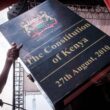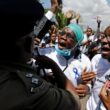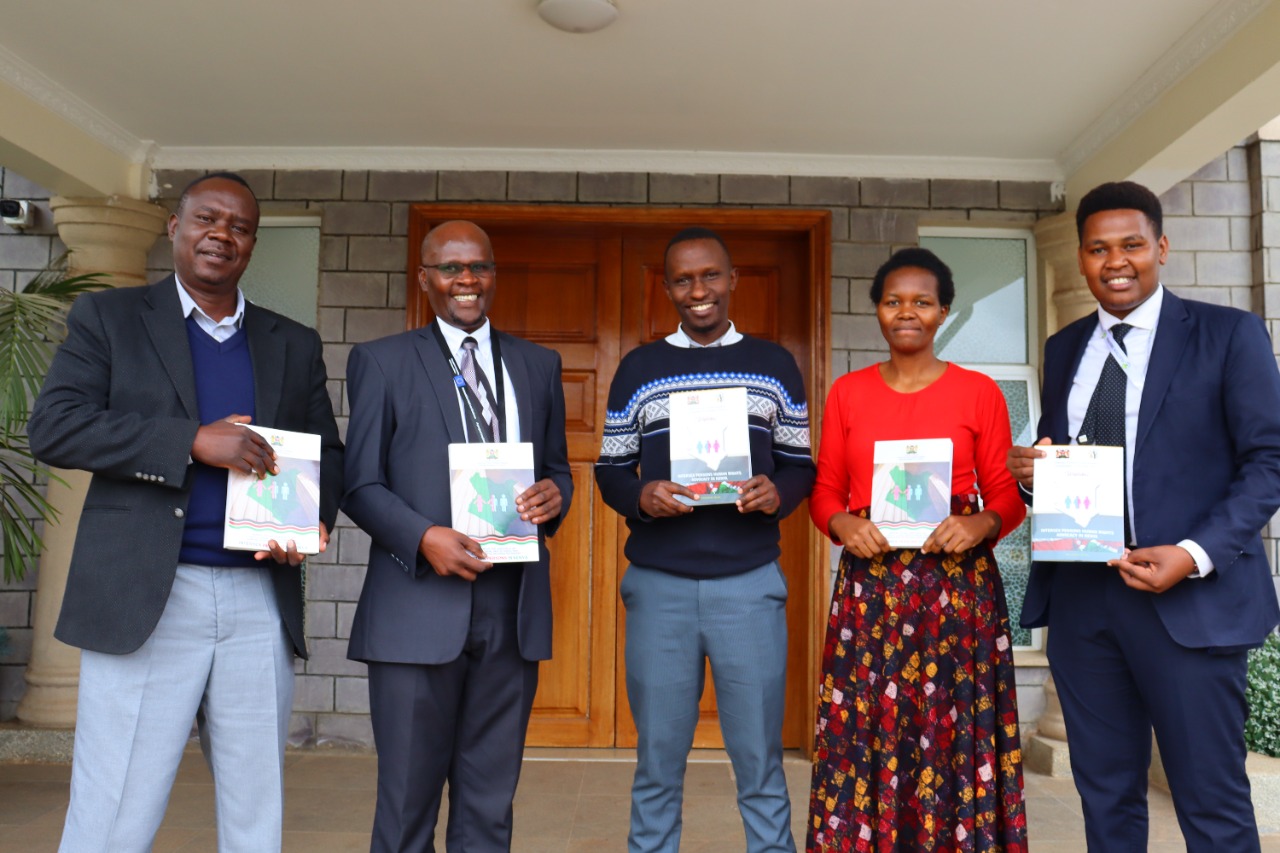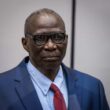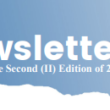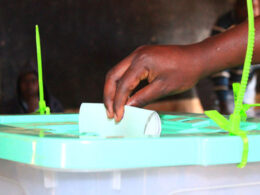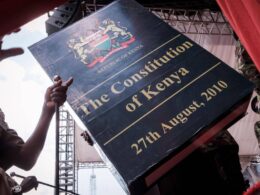By Susan Kendi
As Kenyans prepare to head to the polls on 9 August 2022, the Republic of Kenya is the first country in the world to accredit Intersex Persons (IPs) as Election Observers through its electoral body, the Independent Electoral and Boundaries Commission(IEBC).
In collaboration with the Kenya National Commission on Human Rights(KNCHR), the International Commission of Jurists, Kenya (ICJ Kenya) engaged 17 Intersex Persons and successfully applied for their accreditation to the IEBC as electoral observers.
On Tuesday, 2 August 2022, our Programme Officers Thuku Mburu and Vincent Kimathi presented Election Observer Badges to KNCHR Commissioner Dr. Dennis Wamalwa, Ms. Jessica, and Mr. Taibu. The KNCHR team also shared their election preparedness strategy and the steps they have taken toward peaceful elections.
“On behalf of the Chair(person) Roseline Odede, Commissioners Professor Marion Mutugi, Hon. Sara Bonaya, Dr. Raymond Nyeris, and I are grateful for our good reception and partnership. For ICJ Kenya, we look forward to working together more, and thank you for giving us a chance to have 17 observers to be part of this team,” said KNCHR Commissioner Dr. Dennis Wamalwa.
He further stated that the Kenya National Commission on Human Rights(KNCHR) dispatched 150 election monitors to the 47 counties.
ICJ Kenya has been at the forefront of ensuring that the 2022 Election is free, fair, and credible through various interventions outlined in its Election Strategy. One of the strategies is to observe the electoral process and monitor the electoral environment. So far, successfully filed for accreditation with IEBC as an observer organisation.
In 2019, Kenya became the first African country to recognise intersex persons in its census. The census recorded 1,524 intersex persons, with the oldest being 92 years. However, there is increasing evidence that the number might be higher and that the low numbers documented during the 2019 census could be pinned on stigma, fear, and shame brought by the condition. By this, most prefer to conceal their identities. According to complaints received by KNCHR in the past, thousands of Kenyans born with intersex conditions continue to suffer in silence.
Three years after the census, on 17 February 2022, the National Assembly approved Dr. Dennis Wamalwa’s nomination as KNCHR Commissioner. He became the first intersex person to hold a state job. Dr. Wamalwa is also a Board Member and the Vice-Chairperson of the Intersex Persons Society of Kenya (IPSK).
In 2020, our Jurists of the Year was Commissioner Jedidah Wakonyo Waruhiu.The award recognised her consistency in promoting the rights of Intersex Persons, Alternative Justice Systems, and as a Paralegal Champion.
Several cases have been filed that have brought to the fore the challenges that Intersex Persons face in Kenya, such as the R.M vs. Attorney General & 4 others [2010] case and E.A & Another vs. Attorney General & 6 others[ES1] .
In May 2017, the then Attorney General formed the Taskforce on Policy, Legal, Institutional and Administrative Reforms regarding Intersex persons through a gazette notice no. 4904. The task force consisted of representatives from different institutions, including the Kenya Law Reform Commission (KLRC), Office of the Attorney General and the then Department of Justice, Directorate of Immigration & Registration of Persons, National Gender and Equality Commission, Kenya National Commission on Human Rights (KNCHR). The task force was tasked with compiling comprehensive data regarding the number of intersex persons, their distribution, and the challenges they face; the care, treatment, and protection of intersex persons, and also looking into the existing laws and policies of the medical structures governing Intersex persons. Upon completing the research, the team filed a report recommending short and long-term reforms that will ensure the protection of Intersex Persons.
In the 2022 general election, the Independent Electoral and Boundaries Commission(IEBC) has strived to increase marginalised groups’ participation and representation by engaging and partnering with them to ensure inclusivity in the electoral processes. Apart from the Intersex Persons being accredited as electoral observers, the IEBC has also put measures in place to ensure that Persons with Disabilities exercise their democratic rights by participating in the elections.
In a meeting held at the Kenya Institute of Curriculum Development (KICD) on 22 October 2021, the IEBC promised to procure polling booths that are accessible for those physically challenged and that will ensure the confidentiality of their votes as they mark the ballot papers.
While speaking at the engagement forum IEBC Chairman Wafula, Chebukati noted, “ The Commission assures PWDs of its commitment to ensuring inclusivity in electoral process… Our Constitution has laid a solid foundation for political participation and representation of Persons With Disabilities. However, we must remain alive to the fact that a lot more remains to be done in this quest for greater inclusivity for persons with disabilities.”
Presently, the total number of registered voters in Kenya as of August 2022 is 22,120,458. This is an increase in comparison to the past two elections. In 2017, there were 19, 611, 423 registered voters, and in 2013 there were 14,388,781 registered.


